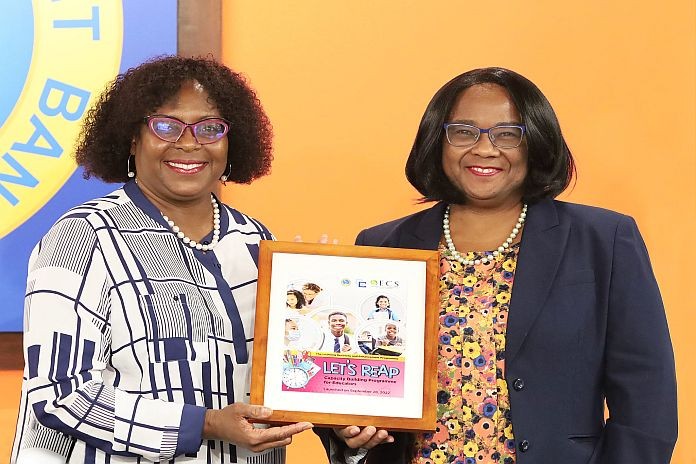BRIDGETOWN, Barbados – Educators across the region, will have the opportunity to benefit from capacity building in key components of the Learning Recovery and Enhancement Programme (Let’s REAP) for Caribbean Schools, an intervention designed to address the learning loss that occurred or worsened due to COVID-19.
Launched in July 2021, Let’s REAP was developed by the Caribbean Development Bank (CDB), the CARICOM Secretariat and the OECS Commission to provide school leaders and teachers across the region with a roadmap to bridge gaps and accelerate learning outcomes for all students, while improving inclusion. The course focuses on three core drivers: implementing communities of practice focused on student learning, using formative assessment and differentiated instruction to drive effective teaching, and leadership for learning.
COVID-related school closures in the Caribbean affected approximately 1.7 million children across 21 countries, disproportionately impacting marginalised and vulnerable students. The certification programme, which was developed by The Eastern Caribbean and Western Joint Boards of Teacher Education, seeks to address these impacts in the short term and increase equitable access to quality education and training in the medium to long term.
Addressing the launch, CDB’s vice-president (Corporate Services) and bank secretary, Yvette Lemonias Seale, said:
“The Caribbean Development Bank, in its commitment to strengthening social infrastructure as a means of promoting human capital and socio-economic development in the region, is strategically investing in the Learning Recovery and Enhancement Programme … to empower schools to improve the quality of teaching and learning.”
CARICOM’s assistant secretary-general, Allison Drayton, said:
“Let’s REAP as a response to put regional progress against the CARICOM Human Resource Development Strategy (HRD) 2030 Agenda and the Sustainable Development Goal 4, back on track is timely and urgent. Capacity building for educators in formative assessment and differentiated instruction; building communities of practice focused on student learning, and leadership for learning will go a long way towards improving student success and addressing academic trajectories and well-being.”
OECS Commission’s director-general, H.E. Dr Didacus Jules explained that in response to the ‘generational catastrophe’ caused by COVID-19, the OECS Commission developed and implemented an Academic Recovery Programme (ARP) in 2020.
He said: “Understanding the direct link between teacher quality and student learning outcomes, this recovery strategy focused on the capacity of teachers, hence aproximately 700 primary school teachers have been certified in Effective Pedagogy in Distributed Teaching and Learning. Ultimately, almost 40,000 students in the region benefitted from this programme. The Let’s Reap progamme builds on the ARP which will further support teaching and learning. Nonetheless, we know that addressing learning loss will require interventions even beyond what we have started and are currently embarking on. It will necessitate diagnosis and assessment, meeting learners at their level, access to psychosocial support, and a multi-sectoral approach.”
The 45-hour certification course will be implemented over a two-year period (August 2022-March 2024) and has been designed for blended delivery and flexible pacing for participants. It is expected that five mixed cohorts of approximately 3000 educators each, including principals, teachers and ministry of education officials will complete the course over a 6-to-10-week period.
The programme is in line with CDB’s mission to reduce poverty and transform lives through sustainable, resilient and inclusive development, and advances the goals of the CARICOM HRD, as well as the OECS Education Sector Strategy.
The first cohort of 3000 educators will commence training in October 2022.





